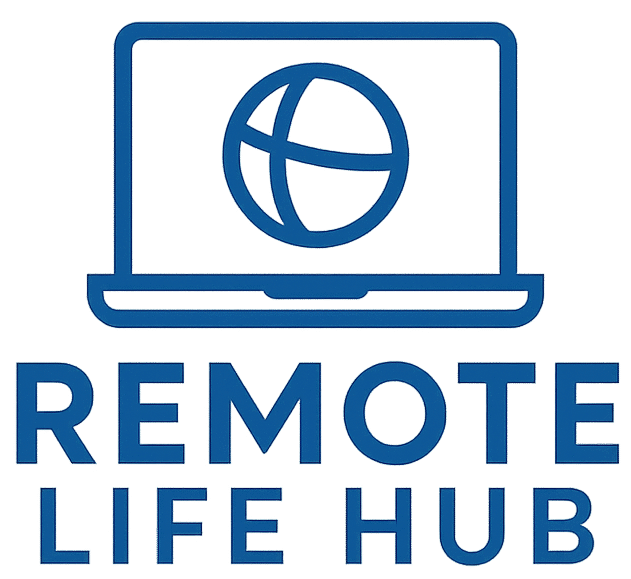Living Off-Grid: The New Remote Lifestyle Trend
Why “Off-Grid” Appeals to Remote Workers
The off-grid lifestyle once meant cutting ties with modern society; today it represents independence and sustainability. As remote work expands, many professionals discover they can combine career freedom with eco-conscious living. Solar panels, mobile internet, and compact homes now make it possible to live beyond the city’s reach while staying fully connected to global work opportunities. This modern off-grid movement is redefining what it means to “go remote.”
1) The Rise of Remote Independence
When offices closed and jobs went digital, people realized that home didn’t need to mean “house in the suburbs.” A new wave of workers began moving to rural regions, tiny houses, or vans equipped with laptops and solar panels. This shift isn’t about escaping technology—it’s about choosing when and how to use it. The same tools that power remote work—video calls, cloud storage, and project apps—also enable location freedom. Read more about this migration in How Remote Work Helps People Move to Smaller Cities.
2) Technology Making Off-Grid Work Possible
Modern technology bridges the gap between wilderness and workplace. Portable solar kits, Starlink-style satellite internet, and battery banks turn remote cabins and camper vans into fully functional offices. Lightweight laptops and efficient routers keep power consumption minimal. Many digital nomads now design systems where energy independence and professional connectivity coexist—an evolution of sustainability that blends self-reliance with modern efficiency.
3) Building an Eco-Friendly Workspace
Creating an off-grid workspace means thinking about both comfort and conservation. Solar panels provide electricity, while LED lighting and energy-saving laptops keep power use low. Reclaimed wood desks, recycled materials, and ergonomic chairs made from sustainable fabrics turn necessity into design. For budget-friendly comfort tips, see How to Create a Comfortable Home Office Without Spending Much.
4) Internet Access Beyond the Grid
Reliable connectivity is the biggest concern for off-grid workers. Fortunately, multiple options now exist: satellite internet, long-range 4G/5G routers, or community Wi-Fi hubs in small towns. Backup strategies—such as downloading reference files for offline use—prevent work interruptions. Combining asynchronous communication (email, recorded video updates) with scheduled check-ins ensures productivity regardless of signal strength. Learn to balance time zones and connectivity in What It’s Like Living and Working From Different Time Zones.
5) Financial and Environmental Advantages
Living off-grid reduces rent, commuting costs, and environmental impact simultaneously. Many remote professionals report savings of thousands of dollars annually by cutting city expenses. At the same time, renewable energy use and smaller living spaces shrink carbon footprints dramatically. The shift reflects not only personal economics but also a growing global awareness of sustainable living. Explore the environmental perspective in The Environmental Benefits of Remote Working.
6) Balancing Comfort and Simplicity
Off-grid living challenges people to distinguish between comfort and excess. Minimalist setups encourage mindfulness—every object has purpose. A simple, reliable setup often proves more satisfying than constant upgrades. It’s about knowing what truly supports your work and what merely fills space. These minimalist principles also apply to digital life: fewer apps, cleaner desktops, and more focus.
7) Community and Connection Off the Grid
Contrary to the stereotype, off-grid living doesn’t mean isolation. Remote workers form communities through online forums, meetups, and shared land projects. Many regions now host “eco-villages” where professionals share resources while maintaining independent work schedules. Social connection remains essential to motivation and mental health. Techniques for staying engaged are covered in How to Stay Social While Working From Home.
8) Challenges of Off-Grid Remote Life
Off-grid freedom comes with learning curves. Managing power usage, dealing with limited bandwidth, and maintaining self-discipline require planning. Sudden storms can interrupt energy production; isolation can strain focus. Success depends on flexibility—keeping backup systems, clear work routines, and realistic expectations. Effective time-management habits, such as daily planning and weekly reviews, make this lifestyle sustainable. See How to Improve Time Management as a Remote Worker.
9) Designing a Workday Without Walls
Off-grid professionals redefine “workday.” They often align tasks with natural light and energy cycles—creative work in the morning, maintenance during peak sun hours, calls in the evening when devices recharge. This rhythm mirrors nature’s pace and reduces burnout. It demonstrates that productivity doesn’t require fluorescent lights or cubicles—just discipline and purpose.
10) The Psychological Benefits of Simplicity
Minimal environments reduce decision fatigue and encourage focus. Many remote workers describe feeling calmer once detached from city noise and visual clutter. This mental clarity often leads to better performance. Living off-grid naturally enforces boundaries between work and rest—there’s no late-night temptation to “just check one more email” when power runs on sunlight.
11) Preparing to Transition Off-Grid
Anyone considering the move should start small. Test equipment locally before relocating, learn basic solar maintenance, and assess internet options in advance. Gradual transition prevents frustration and financial surprises. Begin with a few days of offline practice—turn off the router, work from backup power, and notice what you miss most. Those insights shape a smoother permanent move.
12) A Future of Hybrid Freedom
The off-grid trend won’t replace cities but will complement them. Hybrid lifestyles—splitting time between rural and urban environments—are already emerging. Companies gain happier, healthier employees, and workers gain deeper connection to their surroundings. The flexibility of remote work ensures that “off-grid” can mean anything from a solar-powered cabin to a camper parked by a beach with a mobile hotspot.
Conclusion
Living off-grid is more than a trend; it’s a modern expression of balance between technology, independence, and sustainability. For remote workers, it demonstrates that career success and environmental mindfulness can coexist. The combination of renewable energy, digital tools, and intentional living redefines both work and home. As more professionals step away from crowded cities, the world is learning that the future of work might also be the future of sustainable living.
